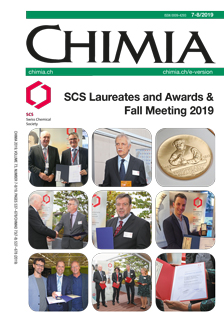Preventing Lignin Condensation to Facilitate Aromatic Monomer Production
DOI:
https://doi.org/10.2533/chimia.2019.591PMID:
31431219Keywords:
Acetal, Biomass, Hydrogenolysis, Depolymerization, Lignin, Oxidation, RepolymerizationAbstract
Lignin is the most abundant aromatic polymer in nature and as such is an attractive source of aromatic molecules. Efficient lignin utilization will also likely play a key role in the economic success and sustainability of biomass valorization schemes. However, traditional strategies for lignin isolation and depolymerization suffer from repolymerization issues, which result in low yield of low molecular weight fragments. This review summarizes the recent progress in lignin isolation and depolymerization methods that are able to limit lignin condensation and facilitate the high yield production of monomers and oligomers. A general trend in these methods is that condensation and repolymerization is prevented by trapping reactive intermediates during extraction or depolymerization by chemically stabilizing the ?–O–4 structure and/or its derivatives, or physically removing the separated lignin fragments from the reactor. We highlight the challenges and opportunities that these methods will face as they are further developed.Downloads
Published
2019-08-21
Issue
Section
Scientific Articles
License
Copyright (c) 2019 Swiss Chemical Society

This work is licensed under a Creative Commons Attribution-NonCommercial 4.0 International License.
How to Cite
[1]
Chimia 2019, 73, 591, DOI: 10.2533/chimia.2019.591.







